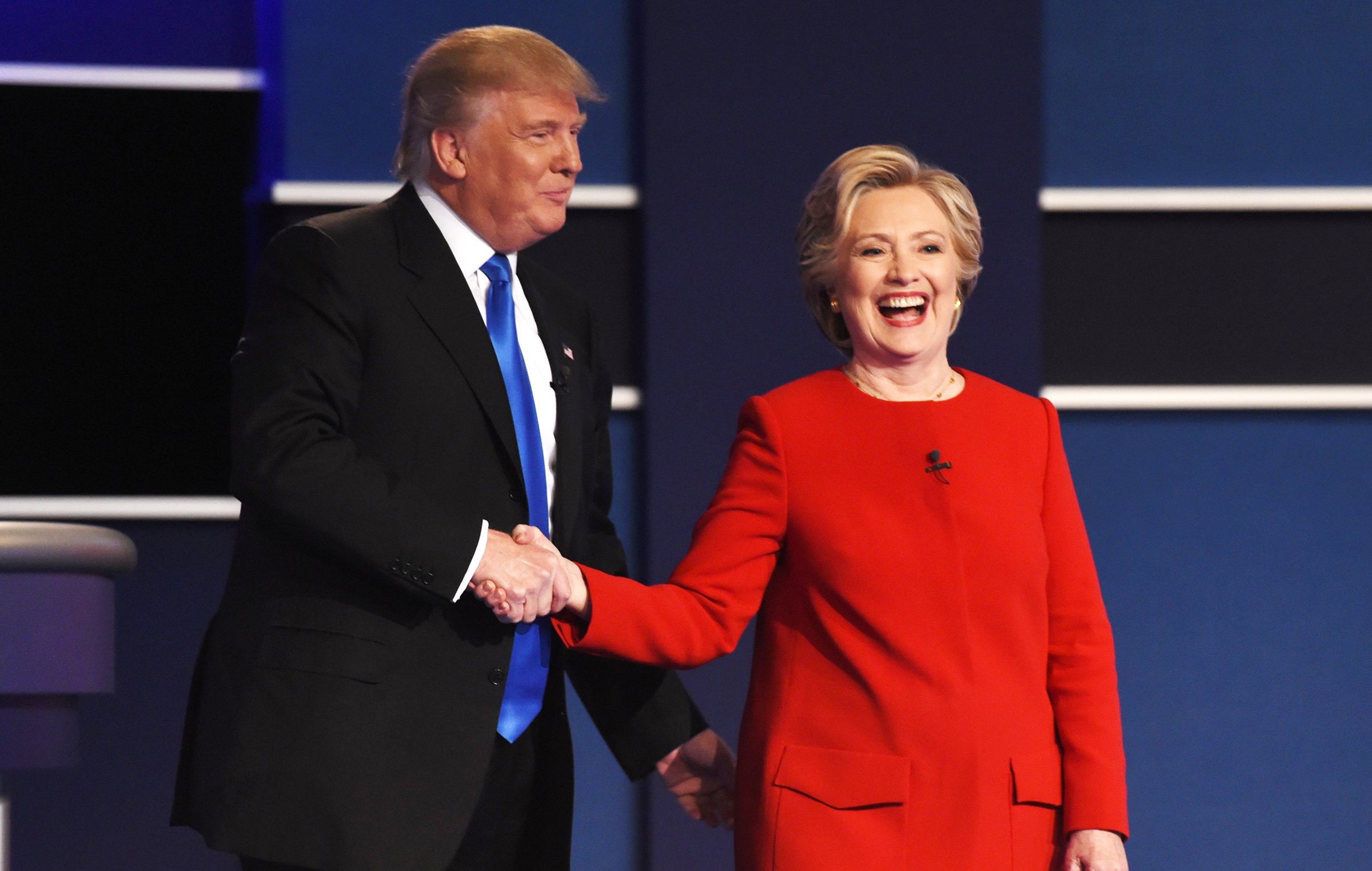
While Hillary Clinton and Donald Trump exchanged barbs during the first presidential debate on Monday night, a team of three people translated every word spoken on stage to Spanish for Telemundo.
Translating U.S. political events as they occur is a fundamental part of how Telemundo’s news team operates. “It’s something we have been doing for many, many years,” Jose Diaz-Balart, who anchors Noticiero Telemundo in Spanish and the Saturday evening edition of NBC Nightly News in English, said.”It’s part of our service, the way we see our responsibility—the way we serve the Latino community.”
That doesn’t mean it’s easy—translating someone like Trump, for example, takes an experienced mind ready to work quickly and catch everything the Republican nominee says when he inevitably goes off the script.
“I don’t think you actually prepare for Donald Trump,” Diaz-Balart, who covered the debate from Hofstra University on Monday, said. “There are people who speak very quickly and not in complete sentences at all times.”
In the event of a debate, when the presidential candidates speak quickly and cut each other off, translating accurately is most important.
“What I can’t promise is how your voice will sound in Spanish,” Diaz-Balart said. “I can promise your voice will be exact. The focus is not so much on the aesthetic but on being right.”
For Monday’s debate, Telemundo assigned translators to each cover Clinton, Trump and debate moderator Lester Holt. Beyond accuracy, the translators’ challenge was conveying tone.
“The key is to not only be very specific and accurate on the words that are being said, but also the cadences, and how our voices have a corporate language and body language,” Diaz-Balart said.
In general, human beings are difficult to translate, Diaz-Balart, who covered Monday’s debate from Hofstra University, said. They tend to speed up, use incorrect grammar or pepper their words with split infinitives.
“When you’re translating, you need to not only listen to the words, but listen to the way that they are said,” Diaz-Balart said. “It’s almost like another form of journalism, where we’re careful not to include our opinion, but all perspectives.”
Diaz-Balart, who has often invited Spanish-speaking guests on air and translated live, sees this work as integral to the country.
“It’s part of the America that we see and serve every single day,” he said. “It’s less and less uncommon to have conversations in two languages.”
More Must-Reads From TIME
- The 100 Most Influential People of 2024
- Coco Gauff Is Playing for Herself Now
- Scenes From Pro-Palestinian Encampments Across U.S. Universities
- 6 Compliments That Land Every Time
- If You're Dating Right Now , You're Brave: Column
- The AI That Could Heal a Divided Internet
- Fallout Is a Brilliant Model for the Future of Video Game Adaptations
- Want Weekly Recs on What to Watch, Read, and More? Sign Up for Worth Your Time
Write to Mahita Gajanan at mahita.gajanan@time.com